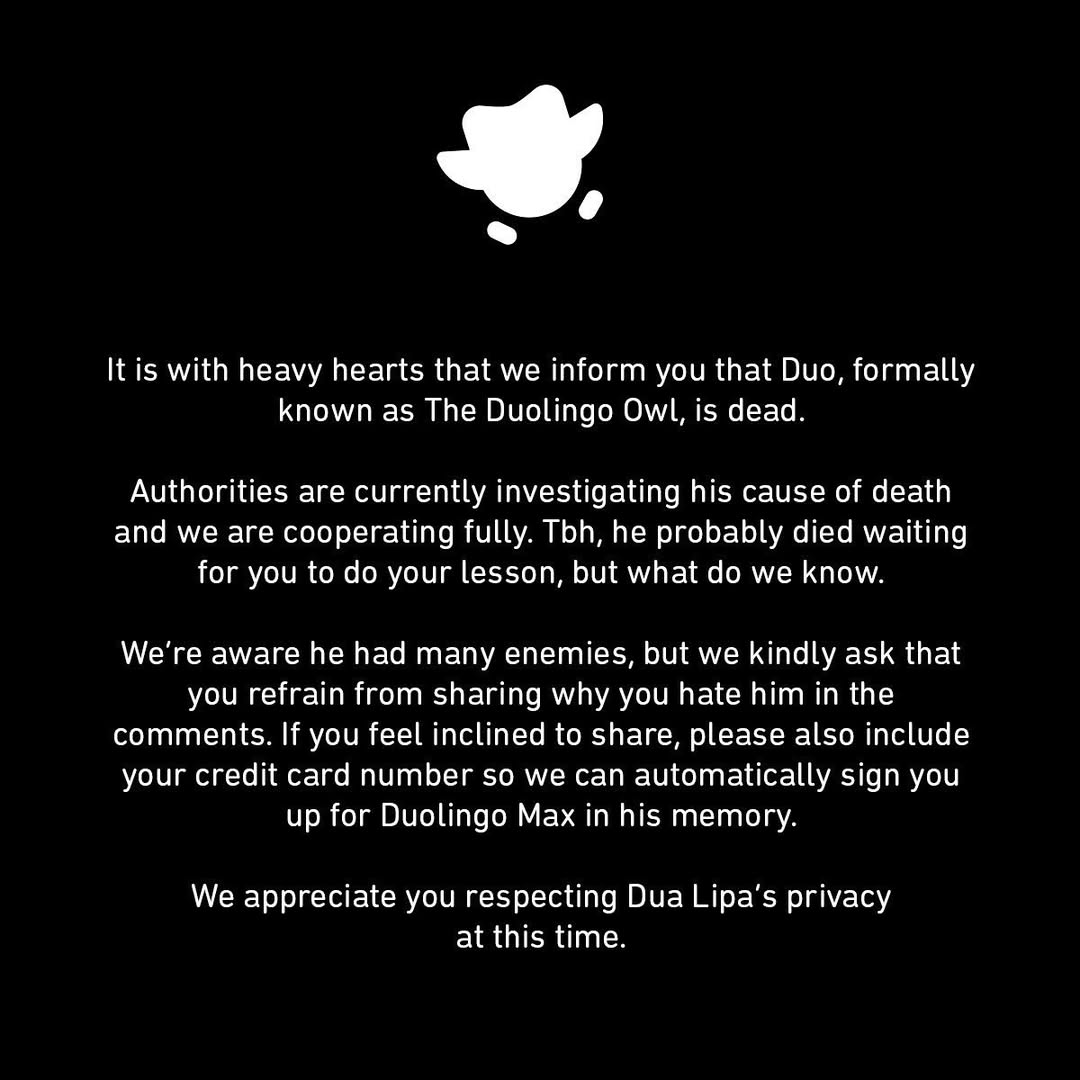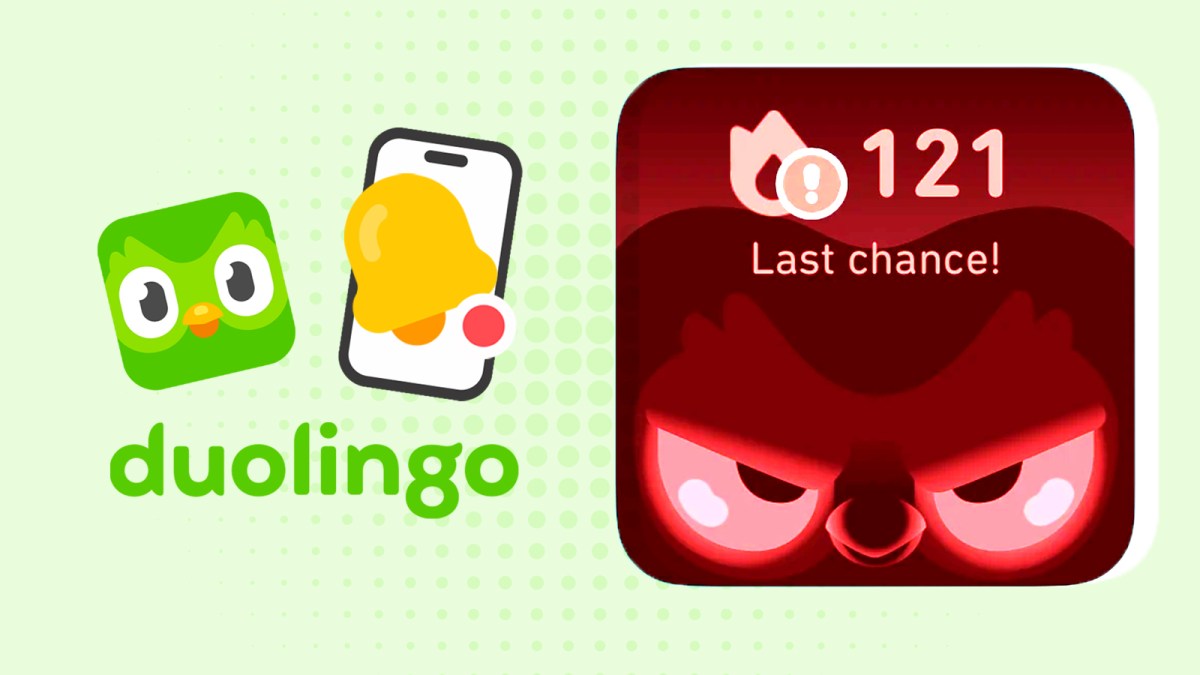Issy, seven, of Tunbridge Wells, was voluntarily — to the joy of her parents — learning French on the family iPad after school. Yet, when it was time to pause for dinner, she started to sob, distraught by the forlorn green owl on her screen, welling up with cartoon tears.
“I need to keep going, I don’t want to make the little bird so sad!” she wailed at her mother.
The bird in question, Duo, was the green owl mascot of the free language-learning app Duolingo and was telling Issy not to stop her French lesson with one minute to go.
The guilt-tripping owl, which becomes more distraught when ignored, is one of the many features that have made its online lessons addictive, helping Duolingo grow to more than 130 million users per month.
As well as animated characters, the app turns learning into a phone game with leaderboards and streaks. Its sarcastic reminders to complete a lesson keep 47 million users returning to its lessons each day.
Now the app, which has expanded into chess, maths and music, is opening its first European office in London and its chief executive, Luis von Ahn, is dreaming of a future with a billion active users.
• Duolingo says sorry after app calls JK Rowling ‘mean’ in German
Von Ahn is not apologetic for Duo’s emotional manipulation. “All the owl wants is that you do your lesson,” he told The Times.

Luis von Ahn
JUSTIN MERRIMAN FOR THE TIMES
The company selects the text for its reminders by testing millions of permutations. An artificial intelligence tool then calculates what message is most likely to work for which user at what time.
The reminders become more passive-aggressive the longer you leave them: from “Your Japanese lessons won’t take themselves” and “You made Duo sad”, to “These reminders don’t seem to be working. We’ll stop sending them for now” and even “You don’t want to make me angry”.
Manu Orssaud, its chief marketing officer, said: “I think our notifications initially were pretty nice, they were very safe from a brand perspective.
“Then, at some point, when we started doing notifications that are a bit more unhinged, we started to see this working very well.”
• ‘Catastrophic decline’ of languages puts them below PE A-level
Duolingo aims for lessons to feel like a game. The metrics — streaks and scores — introduce an element of competition for learners, while friends streaks and family account allow for a sense of camaraderie.
Duolingo would not share the average amount of time people stay active on the app, but said more than ten million learners have streaks longer than 365 days.
The user with the highest streak in the world was, at the time of the Times interview, on 4,640 days, an anonymous American who has been learning Italian for more than 12 years.
Heather McKee, a behavioural expert, said: “From a behavioural point of view, the notifications tap into loss aversion, a negative bias, so the threat of losing something like a streak is more assailant than gaining a point for people.
“They create a sense of urgency with the call to action — you know, do the lesson now — which beats vague encouragement. Their humour softens the edge and it’s kind of like this playful, social pressure.”
Duolingo operates differently for users under 13 to comply with privacy laws and removes the “You made Duo sad” notification, although the owl icon will still change its emotion.
Some users, including parents, have resorted to turning off notifications to avoid the barrage of reminders, which have been described as akin to a “toxic relationship”.
Jessica Elefante, an author and tech critic, stopped her 12-year-old son from using the app.
“Our kids already have enough to feel bad about,” she said. “You don’t want to start them normalising a manipulative co-dependent relationship with a bot dressed up as a fuzzy green friend who makes you feel bad about yourself.”
On social media, however, the notoriety of the aggressive reminders has allowed Duolingo to build a global brand around Duo the owl.
Videos, which started with joking threats from Duo if you did not do your vocab, escalated into a collaboration with Netflix’s Squid Game, an attendance at the Barbie film premiere, a crush on the singer Dua Lipa and, most successfully in January, a plotline — inspired by the head of art’s 12-year-old daughter — in which the owl was killed by a cybertruck before being resurrected.
The funeral for Duo had 67 million views on TikTok.

Duolingo’s playful announcement of the owl’s death
Monthly users have tripled since the start of 2020 and revenue has increased sevenfold over the same period.
The vast majority of accounts use the free app with adverts but 10.9 million have converted to the paid subscription, which accounts for most of the app’s revenue.
Von Ahn wants Duolingo to expand further and has his sights on a physics course. He also wants Duolingo to become the universal proficiency test for languages, which can be referenced in job interviews or university applications.
• Duolingo’s founder on billionaire life: ‘I guess it’s nice not to worry’
The app has collaborated with LinkedIn so jobseekers can display their Duolingo scores. Its English aptitude test is used by a third of UK universities and at more than 70,000 locations around the world.
“I would like to get to the point where there are a billion people actively learning — really learning for real, useful things — on Duolingo,” Von Ahn said. “Because that’s a significant fraction of the world’s population using the phone for learning.”
Will the app continue to use guilt-tripping to get there? “There may be some people who find them too pushy,” Von Ahn said, sounding like the owl, “but I think most people are thankful that we have helped them build a habit.”
